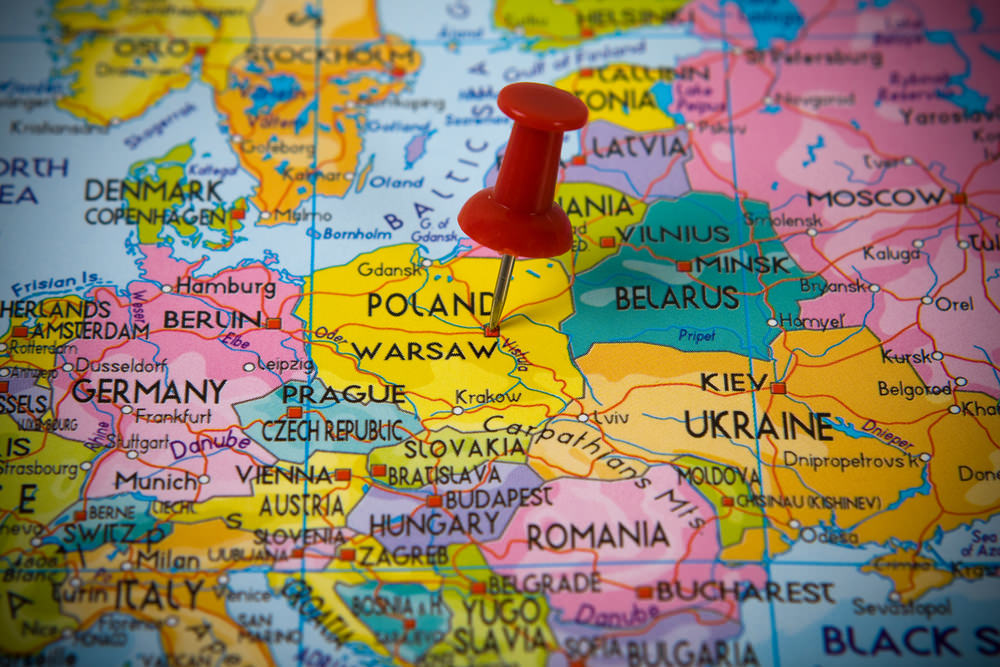
The first Polish businesses to accept bitcoins
The number of companies accepting payment for services and goods in bitcoins is steadily rising in Poland. Although still relatively few, these businesses are paving the way for the increased local use of the digital currency.
Meanwhile, Polish state institutions are yet to present a coherent stance on the digital currencies and their role in local financial transactions.
Social media agency faceADDICTED is one of the latest companies to join the ranks of bitcoin proponents in Poland.
Based in the country’s capital city Warsaw, the agency decided to reinforce its online presence by starting to accept bitcoin payments from its clients in May 2013.
faceADDICTED’s diversified brand portfolio in the Polish market includes major players from various industries, such as Coca-Cola, Starbucks Coffee, Pizza Hut, Burger King, Bosch, Ecco and Comedy Central.
Two months later, another local business with a primarily online presence, web design company El Passion, started accepting bitcoins.
The Polish business says it chiefly specializes in information architecture and user interface design for web and mobile applications. El Passion said in a statement on its website:
In addition to this, the web design company says it is also making efforts to promote and foster the wider use of bitcoins in the Polish economy.
To achieve this goal, El Passion is actively engaged in the activities of the Warsaw Bitcoin Meetup Group and is co-organizing meetings and discussions which are open to all willing to participate and discuss the future on the digital currency.
The first of such parties was held in early August at Parking Bar, a trendy spot in downtown Warsaw, which became another place to accept payments in bitcoins.
Meanwhile, with the ranks of local businesses now accepting payments in the digital currency growing, the Polish Ministry of Finance has drafted a policy document which says that, under Polish law, bitcoins cannot be considered a currency. In spite of this, transactions made in bitcoins are nevertheless subject to taxation, according to the ministry.
The policy document, signed by Poland’s Deputy Minister of Finance Wojciech Kowalczyk and released in July 2013, outlines the ministry’s stance on the use of bitcoins in financial transactions carried out in Poland.

Guide to places which accept bitcoin
The ministry says that, given that bitcoins are currently not universally treated as a currency by Poles, all transactions made in bitcoins are a result of two parties agreeing contractually to use the digital currency in settling their dealings.
This said, the ministry states in the document that "the rising popularity of the bitcoin in the years 2009-2011 has caused increased interest by various public institutions in this phenomena in Poland, Europe and the world.”
The ministry also admits that the question of the legal status of digital currencies is currently debated not only in Poland, but also in numerous member states of the European Union.
"It is worth noting that the functioning of digital currencies, including bitcoin, has a global character. As a result, the Ministry of Finance believes that all eventual actions related to digital currencies should be taken at international level, in particular at the European Union level,” the document says.
According to the finance ministry, the state’s absence from the bitcoin market can be considered a negative factor impacting the digital currency’s users in Poland. The policy document says:
Despite the lack of official recognition of the country’s bitcoin market by Polish state authorities, there are already digital platforms which allow Poles to trade digital currencies.
In its document, the Ministry of Finance refers to one of such platforms, pln.bitcurex.com. Established in 2012, the website is operated by local firm Digital Future, headquartered in the city of Łódź, Poland.
With bitcoin trading becoming increasingly popular in Poland, some established foreign-based platforms are expanding their operations to the local market with Polish-language versions of their websites.
Mt.Gox is already present here with services tailored to the needs of Poland-based customers. In late 2011, the Tokyo-based business acquired local website Bitomat.pl and migrated its users’ accounts into its system, thus becoming a major local player.
Meanwhile, as the digital currency market continues to expand in Poland, local non-governmental organizations are also beginning to appreciate the digital currency in a bid to garner increased funds for their operations.
The local branch of the Ludwig von Mises Institute, a free market think-tank, is very likely the first Poland-based non-profit to start accepting donations in bitcoins.
DISCLOSURE
The leader in news and information on cryptocurrency, digital assets and the future of money, CoinDesk is a media outlet that strives for the highest journalistic standards and abides by a strict set of editorial policies. CoinDesk is an independent operating subsidiary of Digital Currency Group, which invests in cryptocurrencies and blockchain startups. As part of their compensation, certain CoinDesk employees, including editorial employees, may receive exposure to DCG equity in the form of stock appreciation rights, which vest over a multi-year period. CoinDesk journalists are not allowed to purchase stock outright in DCG.

